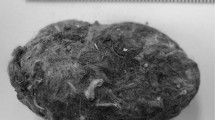Abstract
In this response essay we offer some critical comments on the nature of science (NOS) and thereby hopefully extend Hodson and Wong’s (2017, this issue) argument concerning understanding scientific practice. Drawing on selected theorising in science and technology studies (STS), we argue that NOS needs to take much more seriously sociopolitical contexts of its own formations and embrace wider contemporary social and ecological imbalances, precarities, and injustices. Drawing on Wittgenstein’s later work, in particular notions of “family resemblances,” we are encouraged by Hodson and Wong’s desires to focus on scientific practice. However, we suggest that their analysis is incomplete because it remains undulywedded to lists of representative features prescinded from scientific practices. We conclude with three suggestions for opening up the NOS black box and extending the scope of NOS debate, by (a) more fully embracing science and education as dynamic, performative, grammatical investigations; (b) exploring ways of reconnecting scientific content (representations of nature) with NOS (scientific cultures); and (c) better understanding NOS as a successful situated curriculum movement. As such, we suggest, it might be distinctively positioned to help challenge increasingly widespread neoliberal, positivistic dreams of futurity.
Résumé
Dans cet article, nous proposons certains commentaires critiques sur la nature des sciences/nature of science (NOS), et ce faisant nous espérons donner plus d’ampleur aux arguments d’Hodson et de Wong concernant la compréhension des pratiques scientifiques. À partir de certains raisonnements théoriques en STS, nous estimons que la NOS a besoin de prendre beaucoup plus au sérieux les contextes sociopolitiques dont elle est issue; elle doit aussi mieux tenir compte de certains déséquilibres écologiques et sociaux et de certaines précarités et injustices contemporaines. Avec les travaux de Wittgenstein, en particulier la notion de « ressemblances familiales », nous apprécions le fait qu’Hodson etWong se soient concentrés sur les pratiques scientifiques. Cependant, nous estimons que leur analyse est incomplète puisqu’elle demeure trop liée à des listes de traits caractéristiques qui existeraient indépendamment des pratiques scientifiques. Nous terminons avec trois propositions pour ouvrir la « boite noire » de la NOS et ainsi élargir la portée du débat en NOS: (a) accepter pleinement l’idée que les sciences et l’enseignement sont des investigations dynamiques, performatives et grammaticales; (b) explorer différentes façons de reconnecter les contenus scientifiques (les représentations de la nature) avec la NOS (les cultures scientifiques); (c) mieux comprendre la NOS comme un mouvement qui a sa place dans les curriculums. Ainsi, nous estimons qu’elle se trouvera dans une position unique pour contraster et questionner certaines idées reçues néolibérales et positivistes axées sur le futurisme.
Similar content being viewed by others
References
Allchin, D. (2003). Scientific myth-conceptions. Science Education, 87, 329–351. doi:10.1002/sce.10055
Barad, K. (2003). Posthumanist performativity: Toward an understanding of how matter comes to matter. Signs: Journal of Women in Culture and Society, 28, 801–831.
Bencze, L., & Alsop, S. (Eds.). (2014). Activist science and technology education. Dordrecht, The Netherlands: Springer.
Frank, A. (2010). Letting stories breathe: A socio-narratology. Chicago, IL: University of Chicago Press. doi:978-0–226-26014-3
Fuller, S. (2007). New frontiers in science and technology studies. Cambridge, England: Polity Press.
Gieryn, T. (1983). Boundary-work and the demarcation of science from non-science: Strains and interests in professional ideologies of scientists. American Sociological Review, 48(6), 781–795.
Hacking, I. (1999). The social construction of what? Cambridge, MA: Harvard University Press.
Hodson, D. (1993). Re-thinking old ways: Toward a more critical approach to practical work in school science. Studies in Science Education, 22, 85–142.
Hodson, D. (2008). Towards scientific literacy: A teachers’ guide to the history, philosophy and sociology of science. Rotterdam, The Netherlands: Sense.
Hodson, D., & Wong, S. L. (2017). Going beyond the consensus view: Broadening and enriching the scope of NOS-oriented curricula. Canadian Journal of Science, Mathematics and Technology Education, 17(1), 3–17.
Irzik, G., & Nola, R. (2011). A family resemblance approach to the nature of science for science education. Science & Education, 20, 591–607.
Irzik, G., & Nola, R. (2014). New directions for nature of science research. In M. R. Matthews (Ed.), International handbook of research in history, philosophy and science teaching (pp. 999–1021). Dordrecht, The Netherlands: Springer.
Kuhn, T. (1962). The structure of scientific revolutions. Chicago, IL: Chicago University Press.
Latour, B. (1987). Science in action: How to follow scientists and engineers through society. Cambridge, MA: Harvard University Press.
Latour, B. (1993).We have never been modern. Cambridge, MA: Harvard University Press.
Lederman, N., & Abd-El-Khalick, F. (1998). Avoiding de-natured science: activities that promote understandings of the nature of science. In W. F. Comas (Ed.), The nature of science in science education (pp. 83–126). Dordrecht, The Netherlands: Springer Press.
Lederman, N., Abd-El-Khalick, F., Bell, R., & Schwartz, R. (2002). View of nature of science questionnaire: Toward valid and meaningful assessment of learners’ conceptions of nature of science. Journal of Research in Science Teaching, 39, 497–521.
Mathews, M. (2012). Changing the focus: From nature of science (NOS) to features of science (FOS). In M. S. Khine (Ed.), Advances in nature of science research: Concepts and methodologies (pp. 3–26). Dordrecht, The Netherlands: Springer.
Pickering, A. (1995). The mangle of practice: Time, agency, and science. Chicago, IL: University of Chicago Press.
Rouse, J. (1987). Knowledge and power: Toward a political philosophy of science. Ithaca, NY: Cornell University Press.
Sismondo, S. (2010). An introduction to science and technology studies. West Sussex, England: John Wiley & Sons.
Wittgenstein, L. (1968). Philosophical investigations (3rd ed., G. E. M. Anscombe, trans.). Oxford, England: Basil Blackwell.
Wittgenstein, L. (1969). The blue and brown books. Oxford, England: Basil Blackwell.
Author information
Authors and Affiliations
Corresponding author
Rights and permissions
About this article
Cite this article
Alsop, S., Gardner, S. Opening the Black Box of NOS: Or Knowing How to Go On With Science Education, Wittgenstein, and STS in a Precarious World. Can. J. Sci. Math. Techn. Educ. 17, 27–36 (2017). https://doi.org/10.1080/14926156.2016.1271924
Published:
Issue Date:
DOI: https://doi.org/10.1080/14926156.2016.1271924




